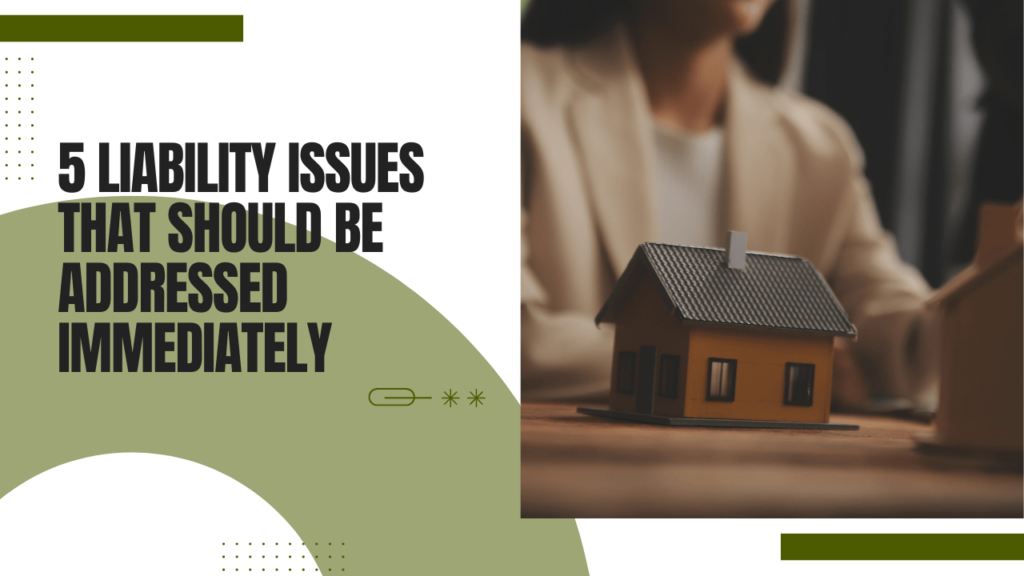
Being a Berkeley landlord is a rewarding experience as it helps you earn passive income and offers financial stability in the long run. However, it also comes with many responsibilities. As a California landlord, if you fail to meet certain obligations, you could be found liable and may face various repercussions.
The best way to avoid these liabilities is to address these potential issues upfront. California Pacific Realty outlines some of the most important liability issues you should address immediately as a landlord.
1. Criminal activities
All property owners are responsible for protecting tenants from assailants, thieves, and criminal activities. Not only are they liable for unlawful acts committed by their residents, but they also have a responsibility to protect the neighborhood from the illegal activities of strangers.
If your rental suffers any form of damage due to any criminal activities, like burglary, assault, or drug dealing, you must react immediately and take steps to limit the potential crime and your liability in any lawsuits that are filed.
Here are a few things you may consider:
- Screen tenants carefully and select those likely to comply with the law and are peaceful citizens.
- Avoid accepting rent in cash payments; instead, choose an online payment method to keep the record.
- Consider adding a clause in a lease that prohibits selling drugs and other types of illegal activities. If you encounter any, consider evicting your tenants.
- Review all the state and security laws that apply to your rental property, such as locks on the windows, deadbolt requirements or ensuring areas around the property are well-lit.
- Understand the nature of crimes in the neighborhood and use the information to design a security system that boosts the safety of your tenants.
- Educate your tenants about types of crime and safety and security systems so that they take quick action when the crime happens.
- Conduct regular walkthroughs and closely monitor things that may expose you to liability.
2. Breach of the habitability warranty
As a landlord, you must provide your tenants with a safe place and keep the rental premises habitable or livable, as stated in the “implied warranty of habitability.” The rules come from local building codes and state statutes that clarify minimum requirements for essential services, such as plumbing, water, and heat. The source of the warranty determines landlord responsibilities and legal options, such as rent withholding, available to tenants.
If there is an occurrence of pests or a mold infestation in the property and the lease has a clause mentioning the landlord’s responsibility for preventing those situations, you will be held liable in case tenants make a claim.
Make sure to read the lease agreement carefully to determine if there is a breach of habitability. If you don’t correctly look after your rental unit, you may find yourself in hot water if your tenants lodge a complaint.
3. Tenant injuries on the rental premises
A rental property must be secured and free of hazards while leasing to new tenants. As landlords are responsible for keeping tenants safe on the property, they will be held liable if there is an accident on or due to negligence of the premises. In most cases, for on-premise injuries, landlords are considered responsible for covering medical bills and other costs.
Maintaining your property regularly is a surefire way to avoid expenses and keep your residents safe. If any of your tenants get injured on your property, and you be held responsible for it, you may ask for several details that make you liable for the accident, such as
- The tenant must provide that it was the landlord’s responsibility to maintain the part of the property where the accident occurred.
- You have failed to take reasonable steps to avert the accident.
- If you didn’t give the tenants adequate warnings
- Your negligence caused the tenant’s accident.
If an injured resident can prove all the above, they can claim against the landlord’s insurance or file a personal injury lawsuit. The claim may include lost earnings, pain, medical bills, physical suffering, disfigurement, and permanent physical disability. An injured tenant may also sue you for damage to their belongings resulting from unsafe conditions or faulty maintenance.
4. Not making timely repairs
As a landlord, you may not be obligated to repair minor things that do not affect the livability of the place, such as a ripped carpet, scratched walls, or peeling porch paint. However, you will be held liable if you don’t address important and pressing repairs issues, like broken HVAC systems, sewage backups, water damage, shorted wires or electrical issues, broken sinks, or clogged toilets.
Make sure you refer to California’s landlord-tenant guide or enquire with local property management experts about the local and state residential laws that may specify how quickly you should address these repairs and the consequences of not fixing the issues in time.
5. Lack of proper insurance coverage
You need to protect the value of your property with the right insurance plan. While covering liability is a standard offering in most landlord insurance policies, it also helps you pay for the expenses if you are found legally liable for any damage after someone is injured on your property or if you are required to pay for damage done to someone else’s property.
Landlord insurance also covers the home’s structure and includes liability coverage that prevents you from paying out of pocket. If you have a mortgage on the property you’re renting to tenants, your lender also requires you to have landlord insurance.
Landlord’s insurance doesn’t protect tenants’ personal belongings. They need a renters’ insurance policy to insure their personal belongings inside the unit.
A landlord can include the roof, walls, and outdoor spaces under the insurance cover. However, any damage to the structure is the responsibility of the landlord and their insurance company, not the tenants. Note that standard insurance policies often don’t cover natural calamities, such as floods and earthquakes.
You need to choose add-ons to secure your property against such events. Make sure you purchase a customized plan to get additional coverage if your property is in an area prone to natural hazards.
Other Liability Issues You Should Deal with Immediately
Not following anti-discrimination laws
Landlords are legally obligated to avoid discrimination under anti-discrimination and state and local fair housing laws. It is unlawful for landlords to refuse to rent a tenant or engage in any discriminatory activities based on race, disability, gender, age, religion, sex, familial status, and other factors.
It is crucial to make all leasing decisions fairly and in accordance with local laws. If applicants or tenants are discriminated against, the landlord will be held liable and earn penalties. Consider reviewing the discrimination laws in your area and setting up a transparent system for vetting applicants.
Provide legal disclosure
If any safety and health-related concerns are associated with your rental property, you must provide legal disclosure to the resident before they lease the unit.
For instance, if there is a lead paint or pest infestation, it could pose a severe health issue for the residents. That is why it is essential to make them aware of the same before they occupy the property. If you fail to disclose any known problems with the property, you are liable for injuries and damage caused to your tenants.
Not taking responsibility for bad tenants
Despite following a stringent tenant screening process, sometimes you may accidentally place bad tenants on your property who pose a potential risk to your asset.
As a rule of thumb, your resident’s behavior shouldn’t negatively impact people close to your property.
That is why you should address the problem and evict the resident if required. You can take corrective actions to protect the health and safety of the people around your rental. Those who fail to take responsibility for their residents will be held liable and may face serious, far-reaching consequences.
Not maintaining tax records
Even if it seems challenging to be a landlord, it is also a crucial role to take on.
Failure to maintain appropriate tax records is another factor that may jeopardize your business as a landlord. If you don’t follow proper tax and business rules and comply with federal and state tax regulations, it may nullify some of the rights you would hold as a landlord. California landlords are also classified as business owners and expected to follow the corresponding tax regulations and business laws for rental owners.
This includes maintaining tax records and ensuring your investments are in good standing. Ensure you understand the rent pricing, security deposits, eviction and tenancy termination procedures, and tax requirements for rental property owners in California.
Deal with liabilities with the help of experts
 One of the best ways to understand your obligations and avoid liability issues is to hire an experienced property management company like California Pacific Realty.
One of the best ways to understand your obligations and avoid liability issues is to hire an experienced property management company like California Pacific Realty.
With years of first-hand experience and knowledge about the local rental market, we help Berkeley landlords streamline their tasks, manage their priorities, and take care of the rental so that liability issues need never arise.
For more information on how to deal with existing and potential landlord liability issues, connect with us at California Pacific Realty.
